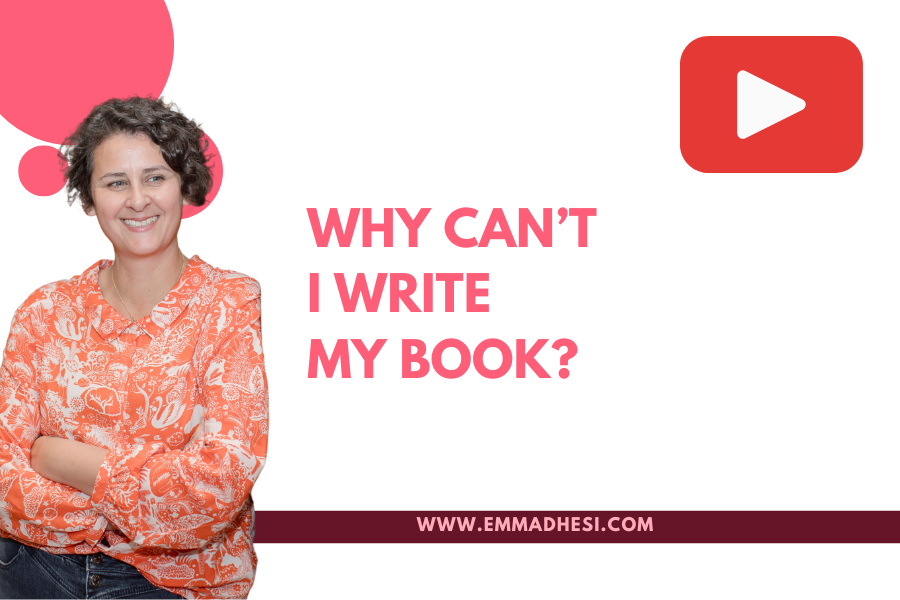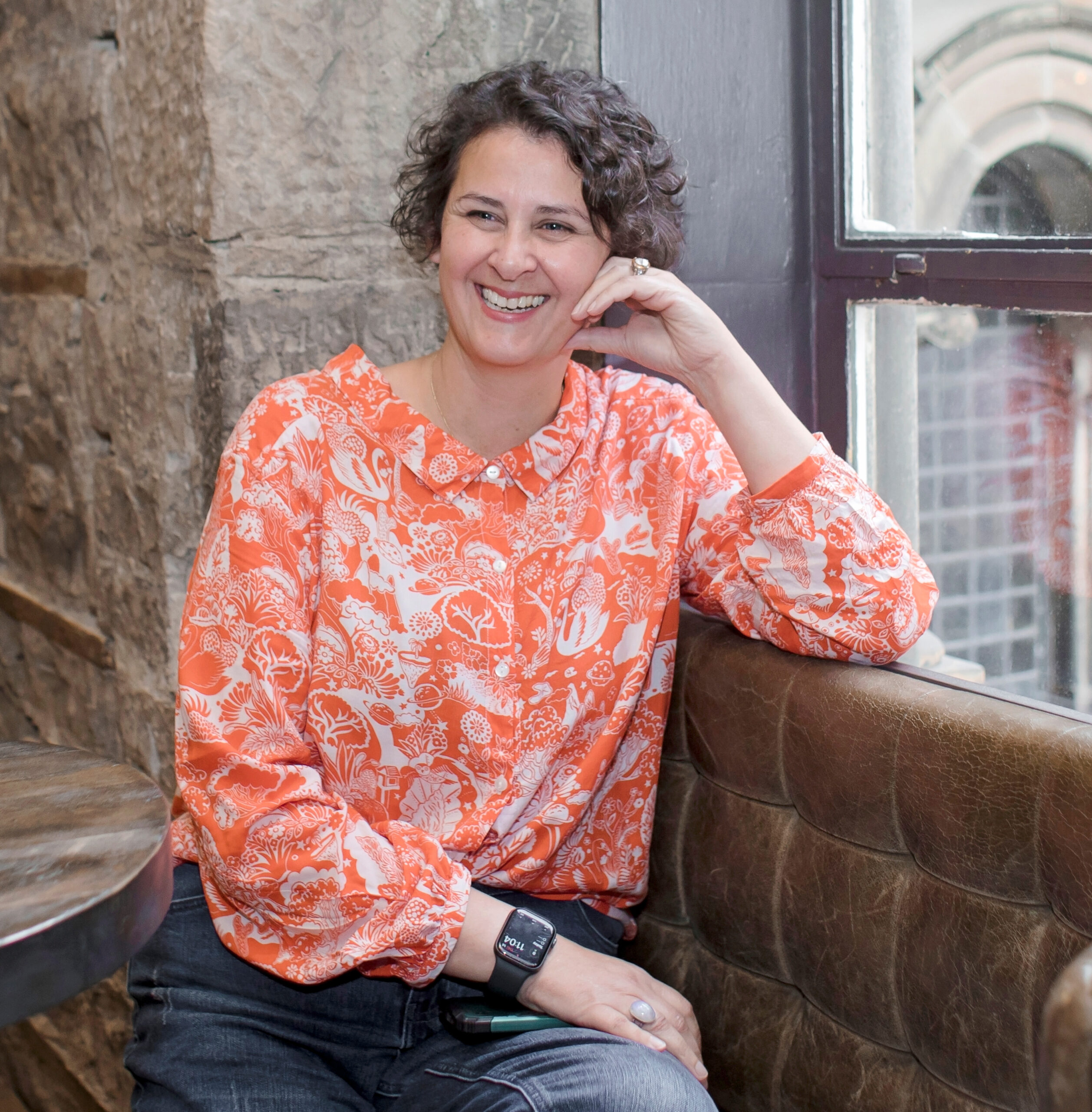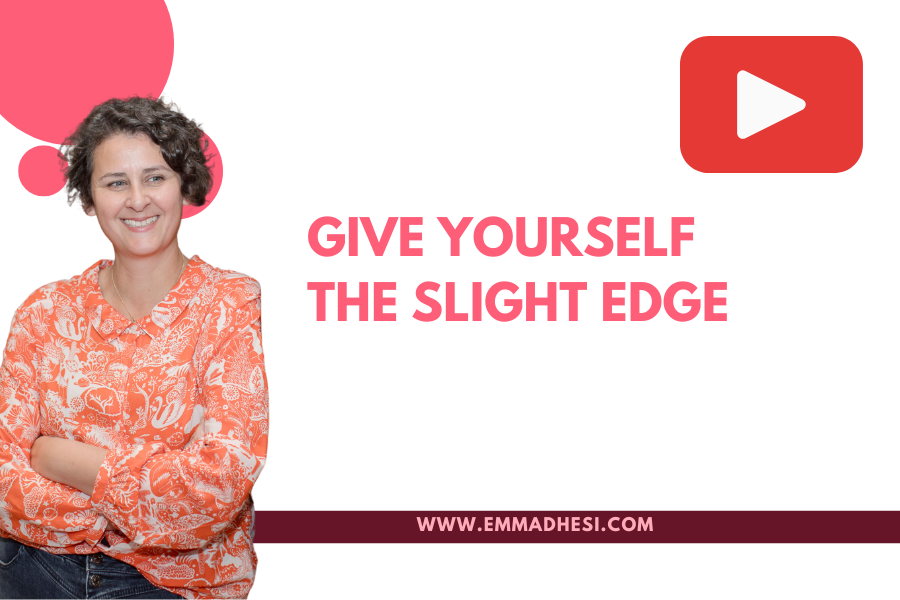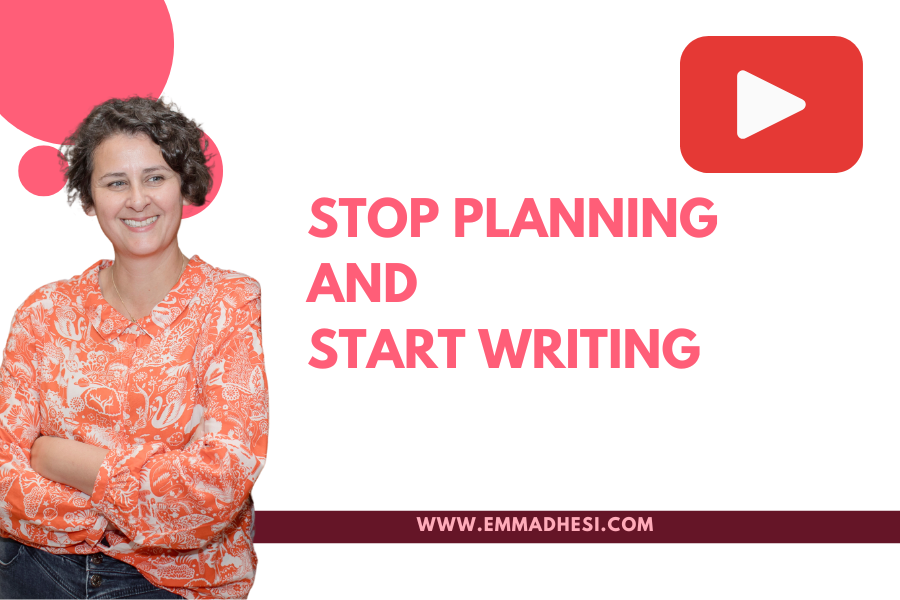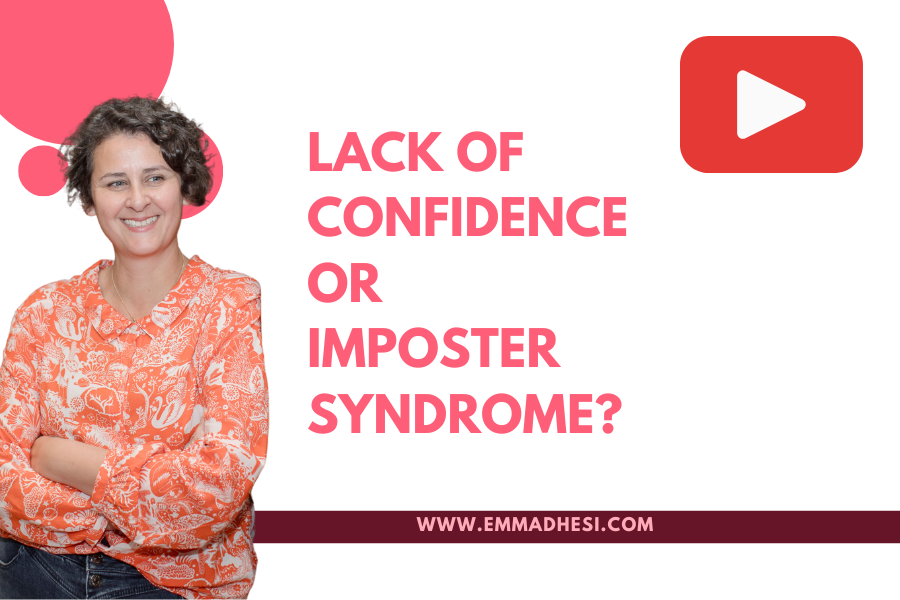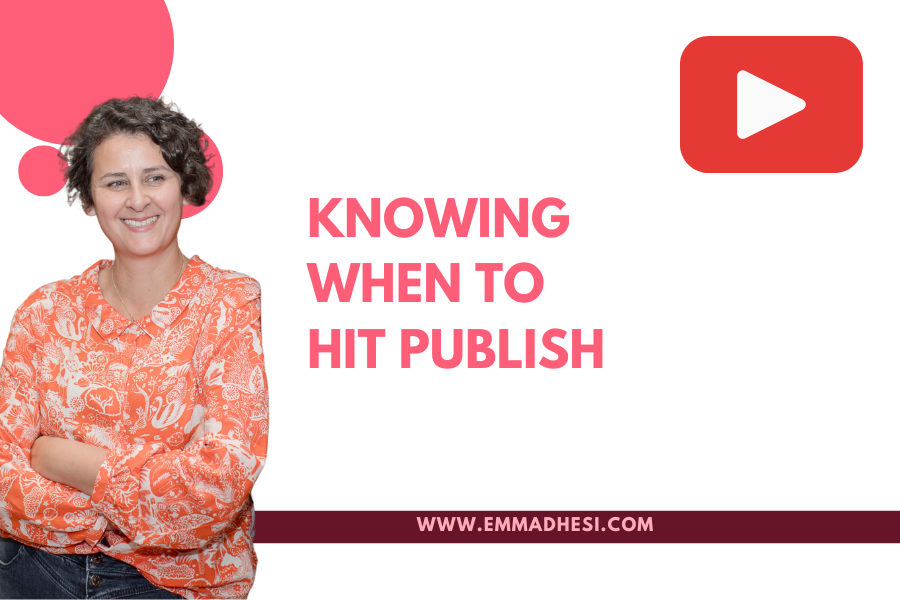Hello my lovely writers, how are you?
Somebody who watched an interview I conducted about Launch Pad: The Countdown to Publishing Your Book – a wonderful anthology I’ve been involved with – asked me a great question.
The question was: How do you know when it’s the right time to hit publish?
This question arose from a conversation about how, as soon as you hit publish, you are a business. While we might start writing stories to be creative and to fulfil a need in us, the reality is, as soon as you become a published author, that story you’ve been writing – possibly for decades – becomes a commodity. It becomes a product. It becomes an asset to you and, believe it or not, to your children as well.
We need to shift our mindset
We need a shift from that mindset and all the ups and downs and angst that comes with being a creative. We have to shift from that mindset into one of a business person and put on our business hat which, for most of us as writers and creatives, is not a natural situation to be in. It’s certainly not why we thought we were getting into the book writing industry.
The truth is you do become a business and you have to think differently about things. You have to stop thinking of your book as part of you, or as a child, because your book is not your baby. When you put your book out into the world, it belongs to everybody including individuals and book groups who are going to find, read, enjoy and discuss your book and its characters.
If the amazing happens and your book gets optioned, your book very much stops being yours, as you’re putting it into the hands of TV or movie producers who are going to decide what happens to your story. They’re going to chop it up and move it around and turn it into something quite different that’s suitable for a viewing audience rather than a reading one.
Knowing when to hit publish
But even after shifting our mindset, that still leaves us with the question: When do you hit publish?
This will depend on how you decide to publish your book.
If you take the traditional route and find an agent who loves and believes in your story and is committed to finding a publisher for it, it’s then in the hands of that agent to find a publisher, then the publishing decision moves to the publisher.
It then falls into the production pipeline and the publisher will decide when they hit publish. Let’s be clear about that. The publisher will decide when it fits into their publishing schedule and their publishing timeline. They decide when the books go to press, when pre-orders go up and when they go on sale. Your job is to turn up and do all the interviews, write the blog posts and go where you’re told to go and also of course create your own opportunities to promote your book.
So, if you’re going down the traditional route, the question you really want to ask yourself is, when is the book ready to query?
Query-ready is different to publish-ready
The decision to query is different to the decision to publish. I have not yet heard of an author – particularly a debut author – presenting a book to an agent and hearing the publisher say, ‘Yes, great! We’re going to go with that and you don’t need to make any changes. It’s all good.’
You need your book to be query-ready, which means your book is as good as you can make it, either entirely on your own or perhaps with feedback from a writing group you’ve been collaborating with or with help from a writing coach with whom you’ve been working.
Upon sending the agent or publisher your query-ready manuscript, they are then going to say to you, ‘We love your book and really want to take it on. However, here are the changes we want to see,’ and you, as the author, get to decide whether to accept that offer and go ahead and publish with them or reject them and say, ‘No, I don’t want to make those changes. That’s not in keeping with my vision for the book.’
I went off on a bit of a tangent there but I want you to understand the difference between deciding when your book is going to be query-ready and when a publisher is going to decide it is publish-ready.
Self-publishing, indie-publishing and hybrid-publishing
Things are different if you decide to go with self-publishing, indie-publishing or even hybrid publishing. With a hybrid publisher, you can take advantage of their in-house expertise but you’ll pay up front for it and then you collect more of the royalties on the back of that.
Alternatively, if you’re going to be indie-publishing, you’ll be responsible for the up-front fees to put it all together, including the book cover and everything else you need to do before hitting publish. But if you are going to be an indie author and, to a degree, a hybrid author, you get to decide when to hit publish.
As the author, creator, businessperson and authorpreneur, you get to make that choice but you have to decide whether to publish after one, two, three or more revisions. Or maybe you are not happy to publish until you’ve got some feedback from some beta readers.
Perhaps you’re going to go a step further and have your manuscript professionally evaluated. You can then take on board those comments and make any changes recommended that you agree with and then hit publish.
There is no perfect book
I’m just going to add a little addendum here for those perfectionists out there, and you know who you are. There’s a difference between being publish-ready and being perfect. I often argue how there is no perfect book and I always default to Stephen King on this.
Stephen King is one of the greatest, most popular and most successful living authors of our generation. Thousands of people give him 5-star reviews and proclaim he is the master of what he does but, equally, there are thousands of people who will give him a 1-star review and say, ‘I don’t get what the fuss is.’
Even after he’s been writing for forty, fifty years, he still hasn’t written the perfect book because there is no such thing as the perfect book.
So, for you perfectionists out there, just hear that. There is no such thing as a perfect book. If you continue to pursue perfection, you’re going to get nowhere. Your book’s never going to get finished, so you’ll never query and you’ll never publish.
Each book you write will be better than the one before it
You need to get to a point where you are happy with your book and where you feel that this is the best you are able to do at this moment in time, given where you are in your writing life and your experience of long form storytelling. Remember, your second book is going to be better than your first one.
The third book is going to be better than that. The fourth book is going to continue to get better and better and better. So, for you perfectionists, please try and put that to one side and know your book’s never going to be perfect but you are going to improve with every book you write, whether or not you publish it.
Knowing when to hit publish
Okay, back to knowing when to hit publish. As I’ve already mentioned, it depends if you’re going down the traditional or indie route. If you’re going down the traditional route, that’s going to be dependent on your publisher, even in a small press, because they’ve got their schedule and will want to put it in a timeline and a pipeline in which to maximise your book’s release.
If you’re going with a hybrid publisher, you have more of a say because you’re going to be doing the vast majority of the promotion yourself.
If you’re going fully indie, it is totally up to you. You get to decide when you are ready to hit publish. Everything is in your hands which, of course, is a double-edged sword. Like anything, there’s pros and cons and you’ve got to determine which is the right path for you and also the right path for your book.
Watch the Launch Pad interview
If you watch the Launch Pad interview we did, you’ll see we talk about how there is no one route to publishing and how, in the last two years, things have shifted from being what is the right thing for each writer to what’s the right thing for each book.
Every project can be done differently now, it’s not just a one and done deal, you’re not just indie or just trad, you can be a mixture of both and that is super-exciting.
I hope that helps with knowing when to hit publish and how it works.
Emma xx
